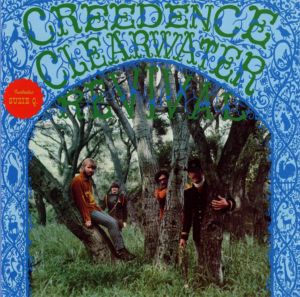
- Format: FLAC

Fantasy Records Ltd.
Release Year Recording...: July 1968
Remaster Year...: 2000
Lead singer/guitarist/writer: John Fogerty
Tom Fogerty: guitarist
Stu Cook: Bass Guitar
Doug Clifford: Drums
Released in the summer of 1968 -- a year after the summer of love, but still in the thick of the Age of Aquarius - Creedence Clearwater Revival's self-titled debut album was gloriously out-of-step with the times, teeming with John Fogerty's Americana fascinations. While many of Fogerty's obsessions and CCR's signatures are in place -- weird blues ("I Put a Spell on You"), Stax R&B (Wilson Pickett's "Ninety-Nine and a Half"), rockabilly ("Susie Q"), winding instrumental interplay, the swamp sound, and songs for "The Working Man" -- the band was still finding their way. Out of all their records (discounting Mardi Gras), this is the one that sounds the most like its era, thanks to the wordless vocal harmonies toward the end of "Susie Q," the backward guitars on "Gloomy," and the directionless, awkward jamming that concludes "Walking on the Water." Still, the band's sound is vibrant, with gutsy arrangements that borrow equally from Sun, Stax, and the swamp. Fogerty's songwriting is a little tentative. Not for nothing were two of the three singles pulled from the album covers (Dale Hawkins' "Susie Q," Screamin' Jay Hawkins' "I Put a Spell on You") -- he wasn't an accomplished tunesmith yet. Though "The Working Man" isn't bad, the true exception is that third single, "Porterville," an exceptional song with great hooks, an underlying sense of menace, and the first inkling of the working-class rage that fueled such landmarks as "Fortunate Son." It's the song that points the way to the breakthrough of Bayou Country, but the rest of the album shouldn't be dismissed, because judged simply against the rock & roll of its time, it rises above its peers.